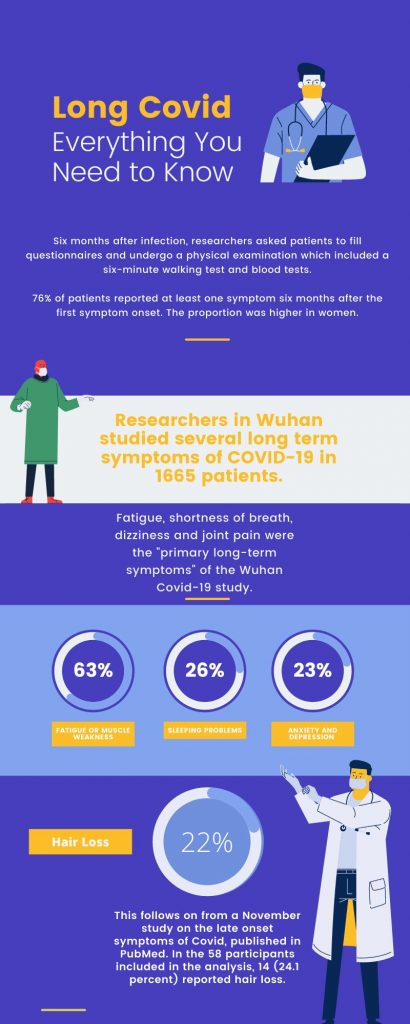A woman’s painful and traumatic hair loss was diagnosed as a symptom of long Covid in February, ten months after her positive Covid test.
Josie Smith, 26, from Clapham, noticed patches of her hair falling out in November, and she was ultimately diagnosed with long Covid two weeks ago.
Her diagnosis follows a February study conducted by researchers in Wuhan, China, that showed nearly a quarter of Covid-19 patients suffered from hair loss within six months of infection, with women at greater risk.
The study, published in the medical journal The Lancet, found that 359 out of 1,655 hospital patients suffered from the symptom.
Smith said: “It felt like I was losing my womanhood.
“I’d always been very proud of my hair. I’d always had a thick, beautiful mane of hair and I very much attributed a lot of my identity to it.
“I was about to take a shower, and when I untied my ponytail and saw a huge bald patch.
“Initially I didn’t believe what I was seeing. I was rubbing the patch to try to see if hair would re-appear, but when I looked again, I found more of them. I started to panic.
“It was a very emotional night. I was really upset. I called everyone I knew that could give me some support including my mum.
“I was afraid of the patches. I didn’t want to look at them, I didn’t want to touch them.
“I was scared to brush my hair because I didn’t want to see the hair coming out onto the brush. I was scared to wash my hair for the fear of seeing it come out in the shower.”

In November, Smith was diagnosed with Alopecia areata, a condition that causes hair to fall out in small patches.
Yet, she became a medical mystery to doctors after a steroid treatment used to stimulate hair regrowth only accelerated the hair loss.
Moreover, whilst Alopecia areota is a physically painless process, Smith suffered acute ache and irritation every time she lost a patch of hair.
Test results then showed she wasn’t suffering from an autoimmune disease but from long Covid.
Smith said: “I was really healthy going into this pandemic.
“When I had Covid it was very easy for me as I didn’t cough, I had no temperature, no discomforts, I was just tired. That was all.
“But then I thought I would be bald forever, especially at the beginning because it was just bald patches. There was no regrowth.
“It was one of the difficult journeys I had to go on at the beginning, coming to terms with the fact that I might lose all my hair and I need to learn to be comfortable with that.”
Fatigue, shortness of breath, dizziness and joint pain were the other “primary long-term symptoms” of the Wuhan Covid-19 study, with 63% of those surveyed suffering from fatigue or muscle weakness.
Moreover, in a three-month follow-up survey of 538 COVID-19 patients, researchers found that fatigue, post-activity polypnea (rapid breathing or panting), and hair loss were more common in women than in men.
Smith suffered in varying degrees with all of the prominent long Covid symptoms, whilst blood tests showed her Vitamin D and B12 intake to be critically low.
She has since been prescribed vitamin supplements and a weekly B12 injection, the effects of which have been transformative.
Smith said: “I’ve been exhausted for a year and I had felt like I’d lost my personality, like I’d lost my ability to do anything. I thought I was lazy.
“Within a day it felt like I had come back, after having disappeared for a year. It was really nice.
“Hair-wise it’s also not hopeless. I’ve got a lot of regrowth especially at the top of my head, although new patches are still developing.
“My hope is it will grow back.”
Despite the Wuhan study showing 22% of patients to have lost hair, the NHS does not yet list hair loss as a long-term symptom of Covid-19.




